Homeowners who are starting a home renovation need a deep understanding of their home's structure. Without this foundational knowledge, you risk causing structural damage, compromising the safety of your home, and incurring unnecessary costs. This is where the expertise of the best renovation contractor in Singapore comes in handy.
In this guide, we'll understand the importance of structural integrity, the key elements of a home's structure, and common structural issues that might arise during the renovation. We'll also discuss how a skilled contractor can ensure structural integrity throughout your renovation project.
So, whether you are planning a minor remodel or a major overhaul, this guide is designed to equip you with the knowledge you need to course your renovation confidently.
Best Renovation Contractor in Singapore's Take on Structural Integrity
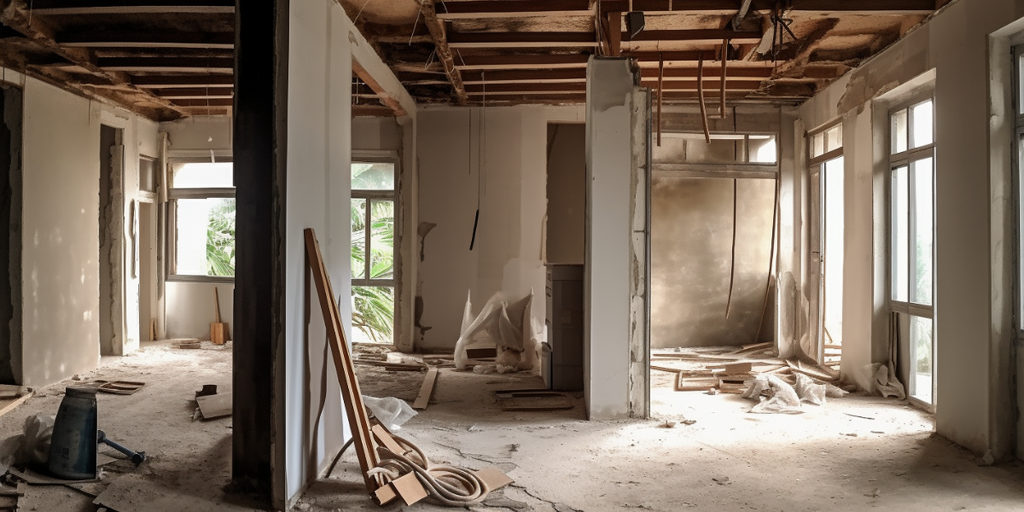
Structural integrity refers to the structure's ability - from its foundations to its walls and roof - to withstand intended loads without succumbing to damage or failure. This ability ensures the stability and security of a home, even in the face of external forces such as weather extremes, fluctuating soil conditions, and the cumulative weight of the home's contents.
Essential Reads for You:
Singapore Renovation Rules for HDB Structural Elements
Ignoring structural integrity could lead to damage necessitating expensive repairs or, in the worst-case scenario, cause a catastrophic building failure.
This is where the best renovation contractors in Singapore come into play. They understand the immense significance of structural integrity and are committed to preserving it throughout the renovation process.
Their approach includes conducting meticulous inspections, planning structural modifications with the utmost care, utilising appropriate materials and construction techniques, and strictly adhering to established building regulations and standards.
Key Takeaway:
Imagine starting a home renovation without giving due attention to its structural integrity. The consequences could be grave, putting not just the safety of the home's inhabitants at risk but also threatening the very longevity of the house itself.
So it is best to always opt for a contractor who prioritises structural integrity and possesses the expertise to maintain it.
Elements of a Home's Structure
Foundation: The Bedrock of a Home
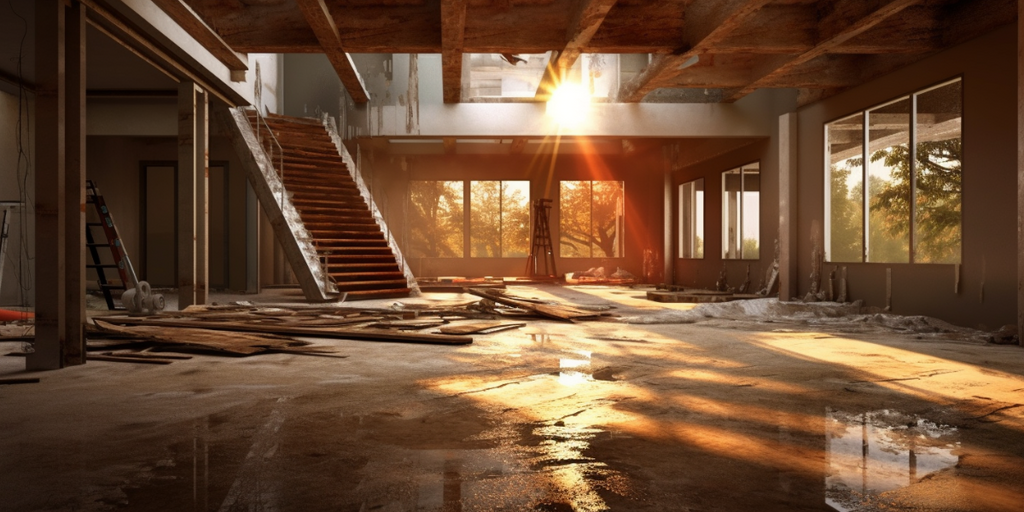
Your home's foundation is pivotal in maintaining its overall structural integrity. Often unseen and underappreciated, the foundation acts as the bedrock of your dwelling. It supports the weight of the entire house, anchoring it securely to the ground and providing a level base for constructing the walls and other structural elements.
One of the critical roles of the foundation is to distribute the weight of the building evenly across the ground, reducing the pressure exerted on any single point. This crucial task prevents the house from sinking, tipping, or cracking.
Moreover, the foundation acts as a barrier between your home and the ground, isolating the structure from moisture, insects, and temperature fluctuations in the soil. This isolation is particularly important in areas prone to flooding or where the ground freezes and thaws.
Due to the country's geographical characteristics and urban planning requirements, different foundations are used in Singapore. These include strip foundations, raft foundations, and pile foundations.
Key Takeaway:
The choice of foundation depends on factors such as the type of soil, the load of the building, and the presence of nearby structures.
Load-Bearing Walls: The Pillars of Strength
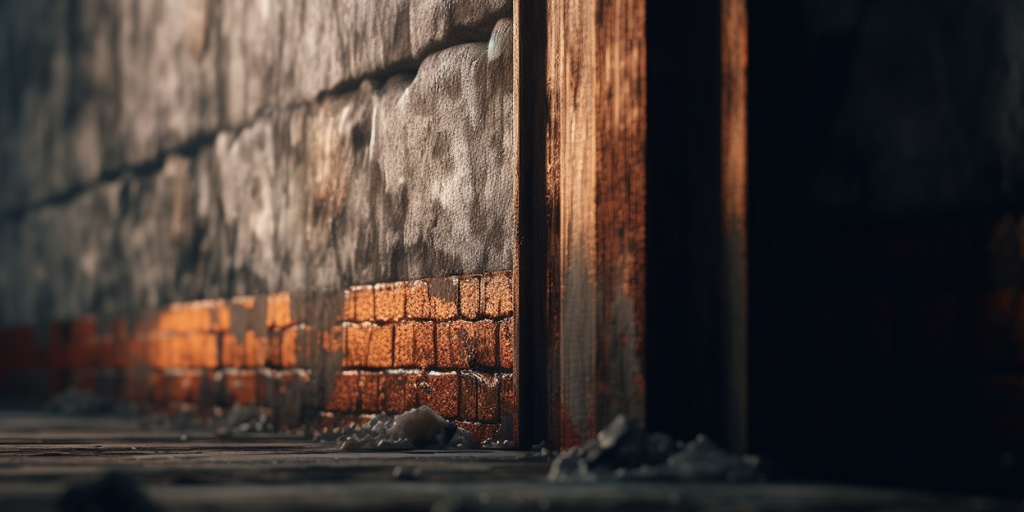 Load-bearing walls serve as the backbone of your home, functioning as the primary supports that transfer the weight of the roof and upper floors down to the foundation. They are essentially the pillars of strength within your home, bearing the "load" of the structure above them and dispersing this weight to the ground below.
Load-bearing walls serve as the backbone of your home, functioning as the primary supports that transfer the weight of the roof and upper floors down to the foundation. They are essentially the pillars of strength within your home, bearing the "load" of the structure above them and dispersing this weight to the ground below.
There are, however, sure signs that could hint at a wall's load-bearing nature. These include walls positioned perpendicular to floor joists, those stretching straight down the centre of your home, and walls displaying additional framing.
Key Takeaway:
A golden rule in home renovation is that modifications, relocations or removals of load-bearing walls should only be carried out with professional guidance. Such actions may jeopardise the structural soundness of the building, potentially leading to disastrous outcomes, including catastrophic structural failure.
Roof Structure: The Protective Shield
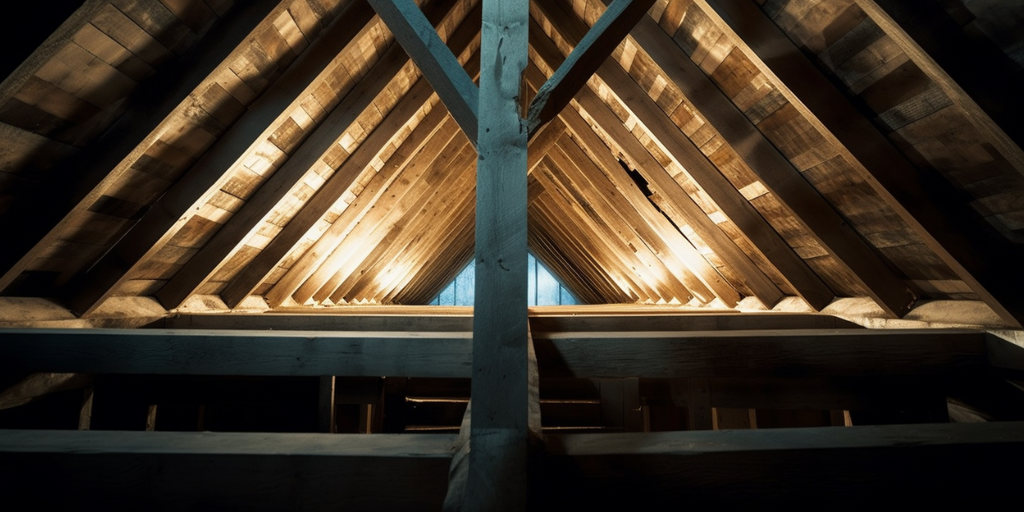
The roof structure serves as the protective shield for your home, effectively safeguarding the interior from the elements, including rain, wind, and sun. Beyond that, it also plays a significant role in managing the heat flow within the house, contributing to the overall energy efficiency and comfort levels of your living space.
The most common types of roof structures found here include flat, pitched, and green roofs. Each has unique characteristics and advantages, and the choice often depends on the building's design, budget, and sustainability goals.
Flat roofs are typical in high-rise residential buildings, offering additional outdoor space and flexibility for features like rooftop gardens or solar panels. Pitched roofs, usually seen in landed properties, provide excellent water drainage and can be aesthetically pleasing.
Though less common, green roofs are gaining popularity for their environmental benefits, such as reducing heat absorption and promoting biodiversity.
The Interplay of Structural Elements: Working as a Cohesive Unit

When it comes to the structural integrity of a home, it's the sum of the parts working in harmony that creates a safe and sturdy dwelling. The foundation, load-bearing walls, and roof structure are each instrumental, and their collaboration is vital to ensure stability and safety.
The foundation is the solid bedrock, bearing the weight of the entire structure, securely anchoring it to the ground, and safeguarding it from ground moisture. The load-bearing walls, tactically positioned throughout the house, channel this weight from the roof and upper floors to the foundation. Simultaneously, the roof structure, a shield against the elements, not only supports its weight but also counters external forces like wind and rain, all the while playing a role in managing the home's internal temperature.
Key Takeaway:
Understanding this interplay becomes essential when planning a renovation, as modifications to one element can ripple through and impact others.
For instance, removing a load-bearing wall without suitable reinforcement can exert undue stress on the foundation, or altering the roof structure without considering weight distribution can threaten overall stability.
Common Structural Issues Encountered in Home Renovation

During the renovation process, specific structural issues may come to light that requires specialised attention. These can range from minor cosmetic issues to major structural problems that, if left unaddressed, could significantly compromise the safety and integrity of the home.
Here are some common structural problems that might surface during home renovation:
Foundational Issues: The foundation serves as the backbone of a house, supporting the entire structure above it. Settling, cracking, or moisture problems can significantly impact a house's structural integrity.
How can the best renovation contractor tackle this issue:
A skilled contractor can identify these problems early on and propose appropriate solutions, such as underpinning, crack repair, or waterproofing.
Deteriorating Structures: Older homes may have structural elements that have deteriorated over time due to exposure to elements, pest infestations, or general wear and tear. This could include rotten wooden beams, rusted steel reinforcements, or crumbling masonry.
How can the best renovation contractor tackle this issue:
A good renovation contractor will scrutinise these elements and recommend either repair or replacement, depending on the extent of the damage.
Inadequate Load Distribution: If previous renovations were carried out without proper planning or knowledge of structural integrity, the house might be dealing with uneven load distribution. This could manifest as sagging floors, cracked walls, or doors and windows that don't close properly.
How can the best renovation contractor tackle this issue:
The best renovation contractors can assess the situation, develop a plan to redistribute the load properly and rectify these problems.
Insufficient Support for Additions: If you plan to add an extra room or story to your house, it's crucial to ensure that the existing structure can support the additional weight. If not, the extra load could lead to severe structural problems.
How can the best renovation contractor tackle this issue:
The best renovation contractors in Singapore can help you plan these additions safely and effectively, ensuring that the existing structure is adequately reinforced or modified to bear the extra load.
Preventative Measures for Structural Issues From The Best Renovation Contractor in Singapore
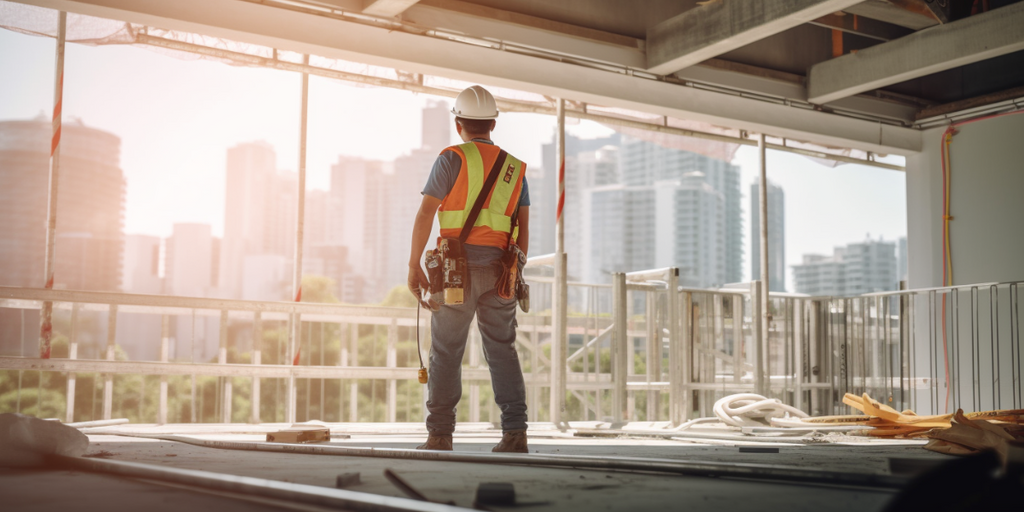
Here are some preventative measures recommended by the best renovation contractors in Singapore to avoid structural issues during your renovation:
Regular Inspections: Regularly inspect your home for any signs of structural damage. This includes checking for cracks in the walls and foundation, sagging ceilings, bulging walls, and doors or windows that stick.
Hire Professionals: Always hire a professional renovation contractor for any structural changes to your home. DIY renovations can sometimes lead to serious structural issues if not done correctly.
Careful Planning: Before starting any renovation project, plan carefully. Understand the scope of the work and its potential impact on the home's structure. A good contractor will help you make informed decisions, guide you through the process, and ensure all changes comply with building codes and regulations.
Proper Maintenance: Regular maintenance goes a long way in preventing structural issues. This includes keeping your home clean and dry, checking for pests, and promptly addressing minor issues. Proper maintenance also helps preserve your home's value and prolong its lifespan.
Quality Materials: When renovating, always opt for quality materials. While they may cost more upfront, they offer greater durability and longevity, saving you money on repairs and replacements in the long run.
Adequate Insurance: Ensure sufficient insurance covers any potential structural damage during the renovation. Knowing that you are covered should anything go wrong can give you peace of mind.
Ensuring Your Home's Strength with the Best Renovation Contractor in Singapore

Understanding your home's structure is critical when embarking on a renovation project. Each component, from the foundation to the roof, plays a significant role in maintaining the structural integrity of your home. This guide gives you a deeper appreciation of these components and their interplay. Moreover, you've learned about potential structural issues that may arise during renovation and the preventative measures you can take to avoid them.
Thoughts to Ponder:
Don't settle for less when you're ready to leap renovating your home. Choose a renovation contractor who understands the importance of maintaining structural integrity and will work with you to bring your vision to life while keeping your home solid and secure.
Your Quick Hit Guides:
Check out this list of the best interior designers in Singapore. Explore their portfolios, read reviews, and find the one that resonates with your renovation dreams.
From HDB guidelines to clever procedures and tips, our latest blog article "Your Ultimate Cheat Sheet to Renovation in Singapore: HDB Guidelines, Procedures & Tips" has everything you need to start your renovation journey on the right foot.
And remember, a renovation is more than just structural changes. It's also about creating a space that reflects your style and meets your needs. So remember to visit Megafurniture to discover a wide range of home and living essentials to help bring your interior design vision to life.



